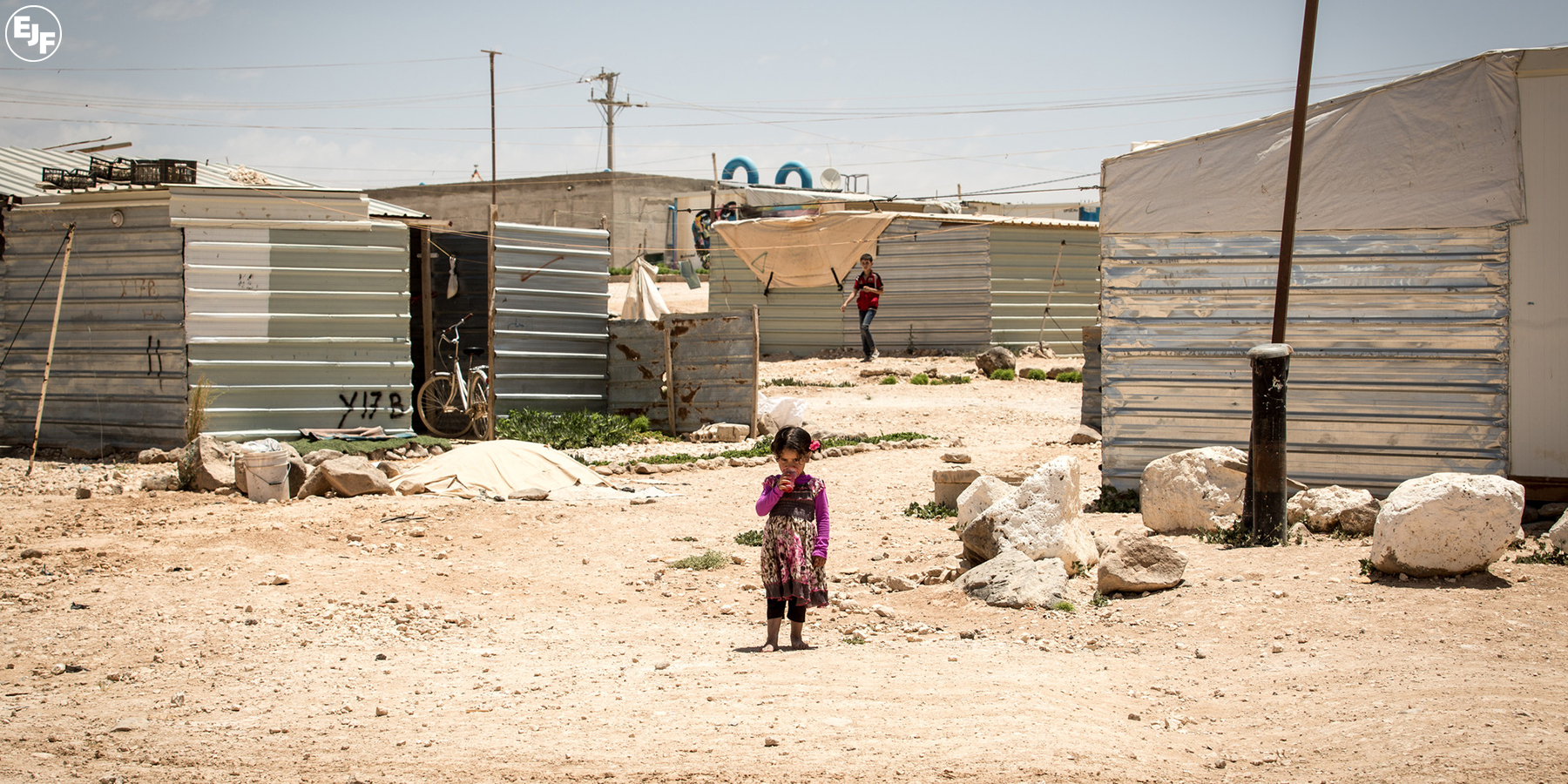
German coalition agreement: Good news for climate and fisheries sustainability?
Germany is waiting with bated breath for its Social Democrat party to give the green light to a new coalition agreement, but what will it mean for key environmental issues?
After previous talks broke down, Germany looks set to be ruled for four more years by a so-called ‘grand coalition’, made up of two centre-right parties – Angela Merkel’s Christian Democratic Union and the Christian Social Union (CDU/CSU) – alongside the centre-left Social Democrats (SPD).
The CDU and CSU have already voted to adopt the coalition agreement, which outlines the general policy framework for the future. All eyes are now on the SPD, which decided to have its party-base vote on the agreement and will announce the results on Sunday, 4 March.
Before the general election last year, EJF asked the major German parties about their future plans on illegal fishing and the protection of climate refugees. All parties said they would take both issues seriously during the next legislative term.
Looking at what the coalition agreement says about these issues, we have found significant gaps but also surprisingly positive progress.
Ocean protection, illegal fishing and human rights in fisheries
The parties agree that the overuse of the global oceans must come to an end. They intend to fight ocean pollution, create marine protected areas and safeguard the biodiversity of the high seas. There is consensus that EU waters are in need of a sustainable fisheries management plan and that future deep-sea mining requires international standards.
In the fight against illegal fishing and labour abuses on fishing vessels, the coalition partners seek to ratify the International Labour Organisation’s Work in Fishing Convention – an important international convention that seeks to protect workers in the fishing industry.
A crucial step to end human rights abuse in global fisheries is the intention to review the application of the voluntary guidelines for companies under the National Action Plan for Business and Human Rights. This plan requires companies to implement and report on measures to avoid human rights abuses in their retail chains. The coalition partners agree that if companies do not show sufficient efforts, then the future government will enact mandatory measures.
Climate change, migration and security
On climate change policy, the focus of the agreement is on climate mitigation and the role of the EU in implementing the targets set out in the Paris Agreement. However, it also speaks of the goal of climate protection in connection with international conflicts and refugee policy.
Crucially, the parties agree that stronger climate protection should be considered part of the future refugee policy. This is highlighted again when they affirm in the agreement that they want to fight the root causes for displacement, and that stronger climate protection will be part of this.
A good result?
It is positive that ocean protection, sustainable fisheries and human rights in the global fishing sector are covered in the agreement. But at the same time, these topics played only a minor role in the coalition talks. In recent years, the CDU/CSU and SPD have made an effort to put ocean protection and sustainable fishing on the agenda but missed the opportunity to truly commit to protecting our oceans in the next four years.
The agreement has already been broadly criticised for its climate mitigation gaps: the earlier climate protection goal for the mid-term – the reduction of greenhouse gases by 40% by 2020 compared to 1990 – has been abandoned. Moreover, it is unclear when Germany will finally give up coal.
Nor could we identify a clear commitment to the protection of climate refugees, although it is good to see that climate change is mentioned in connection with displacement and international challenges.
In comparison to the answers which EJF received from the CDU/CSU and SPD before the elections, the coalition agreement does not fully live up to the parties’ stated intentions.
As always, actions will speak louder to words and it is vital that the new grand coalition demonstrates both the political will and leadership to address these critical environmental and human rights issues.
EJF will focus its energy on holding the German government to account when it comes to saving our oceans – especially fighting illegal fishing – and protecting those who seek refuge because of climate change.
SIGN UP FOR OUR EMAILS AND STAY UP TO DATE WITH EJF

